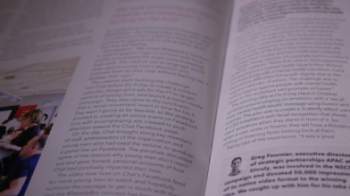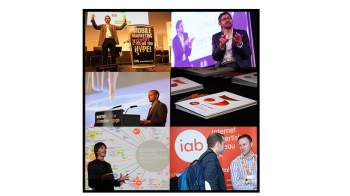GroupM UK’s forecast for the media industry post EU referendum
Adam Smith
Originally published on 27 June, the IAB wanted to share this piece from Adam Smith, Futures Director at GroupM looking at the media industry post-Brexit.
The referendum result ends one period of uncertainty but ushers in another. The UK faces no new economic catastrophe. Neither demand nor the financial system has collapsed. There is no new market failure overwhelming us. The stock market is not the economy. We print our own currency and run our own monetary policy. The new uncertainty is principally administrative and political.
In the short run – say the next six months to a year - it is likely companies will invest less than if we had voted to remain. Job creation, wage growth and productivity will be lower than they would otherwise have been. This is a difference of degree, not magnitude.
Advertising is a volatile form of investment precisely because it can be switched off and on at will, with little or no immediate penalty. Some has already been deferred this year, perhaps indefinitely. Analysing the effects of the 2009 ad recession, Deutsche Bank summarised 'losing market share can be quite profitable. It is the cost of stabilising and rebuilding a brand that is expensive.'
In the UK, print media trading has become increasingly short-term. TV trading has always been based on share, not volume, so TV market 'visibility' is poor in any case. Radio, out-of-home and cinema are much smaller and correspondingly more vulnerable to ad cancellation. Only digital media carry the forward momentum of 'structural' growth, meaning a strong prospect of above-average ad growth and thus market share gains independent of the economic cycle.
Our present UK ad forecast, issued before the referendum, called for 6% growth in total ad investment in 2016. In the introduction we remark 'If we stress-test this with TV hypothetically flat and print display hypothetically down 20%, growth would still be 5%.' If we additionally hypothetically suppress radio, outdoor and cinema to zero, leaving growth entirely dependent on digital, it would still be 4.5%.
In the absence of an actual recession, there is in my view no need to stretch this speculation any further.
Imagine if we had chosen to join the EU instead of leaving it. It is hard to see how the UK's economic or advertising prospects would suddenly have improved. By the end of 2015, the EU ex the UK represented 19% of the global economy instead of 25% in 2008. The UK was 4% then and now. By the end of 2015, the EU's ad economy, ex UK, was 20% smaller now than in 2008, in real terms. The UK's was 8% larger. The UK was already an outlier before the referendum. No-one has seriously suggested EU membership was the main reason for this outperformance.
GroupM will, as usual revise its UK media forecasts in November.
Related content
Debate & diversity are both essential to make the ad industry better
Learn moreQuick Q&A - Brand Safety
Learn moreIAB UK bids farewell to flagship Mobile Engage event
Learn moreDigital Adspend
Learn more
Fast forward to 2030 with Futurescape
An in-depth exploration of the attitudes, innovations and media shifts that will shape the years ahead and redefine how we advertise by the turn of the decade



